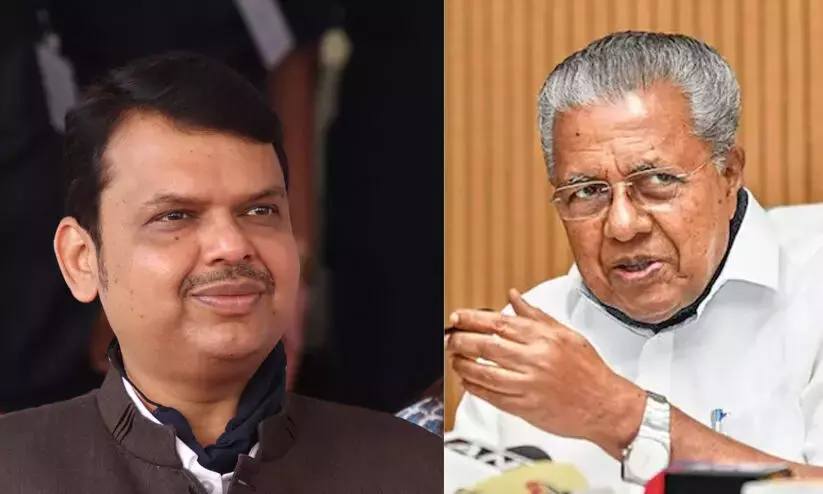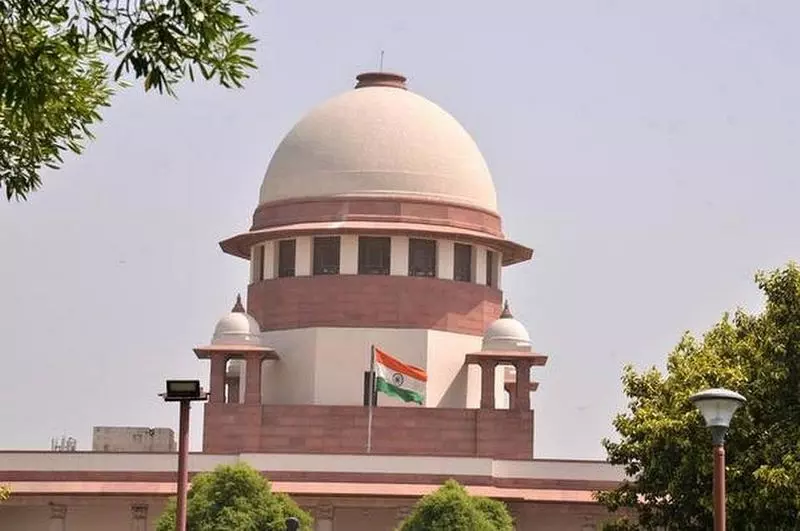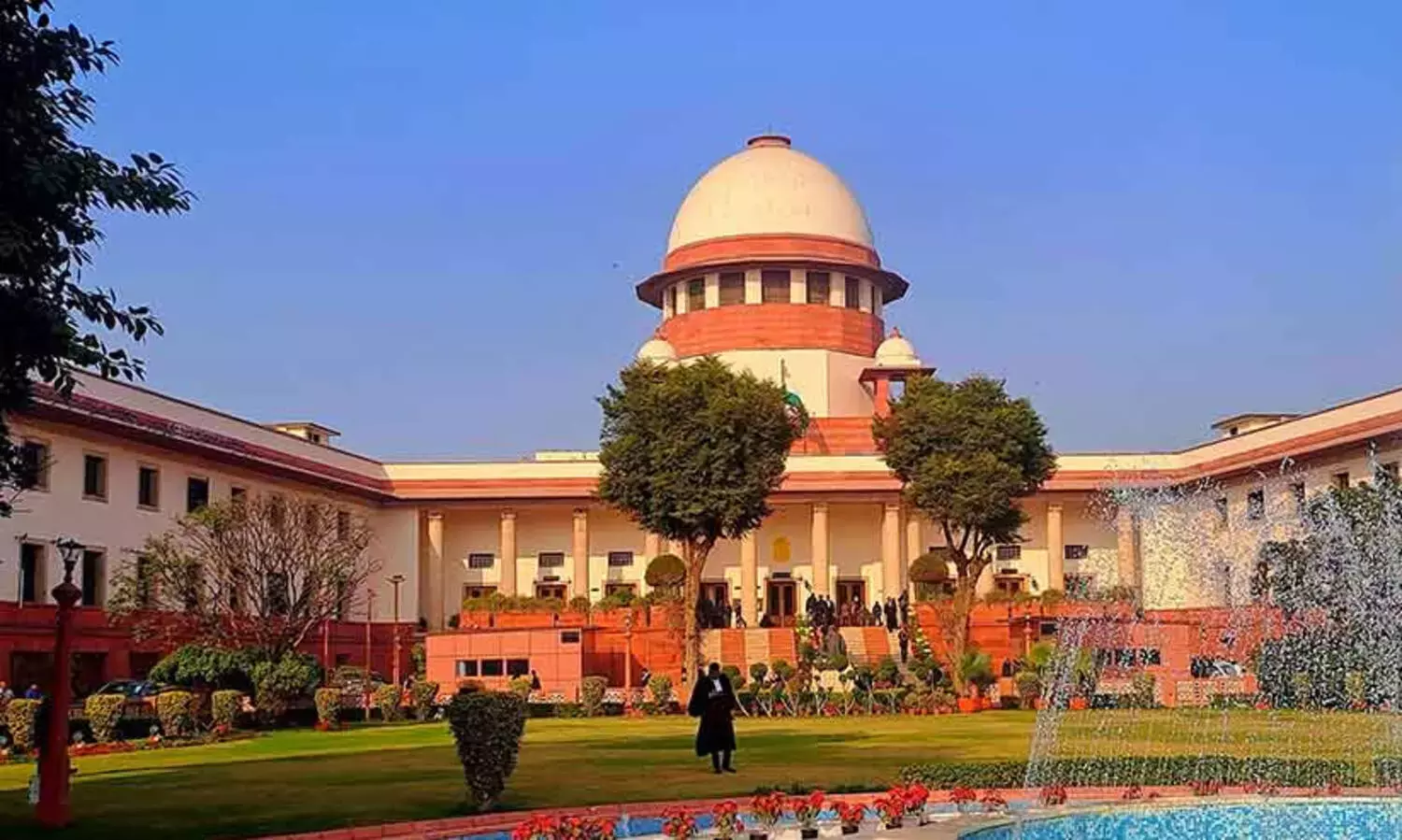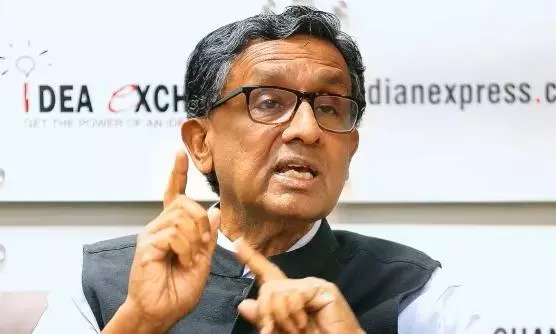
Centre defends Waqf Act in SC, calls it 'secular concept'
text_fieldsNew Delhi: The Centre on Tuesday defended the Waqf (Amendment) Act, 2025, before the Supreme Court, asserting that waqf is inherently a “secular concept” and urging that the law should not be stayed, citing the “presumption of constitutionality” that applies to parliamentary legislation.
In a written submission presented by Solicitor General Tushar Mehta to a bench headed by Chief Justice B R Gavai and Justice Augustine George Masih, the Centre responded to the concerns previously raised by the court. It emphasised that the Act seeks only to regulate the secular aspects of waqf administration while simultaneously safeguarding religious freedoms. The Centre further argued there was no “grave national urgency” warranting a stay on the law’s implementation.
“It is a settled position in law that constitutional courts do not stay a statutory provision, either directly or indirectly, and will decide the matter finally. There is a presumption of constitutionality that applies to laws enacted by Parliament,” the note stated. The Solicitor General is expected to present oral arguments on Wednesday.
The Centre addressed three key issues the court had identified for interim consideration: Section 3(r), which prospectively removes recognition of “waqf by user”; Section 3C, which excludes government property from being declared waqf; and changes to the composition of the Central Waqf Council and state waqf boards, allowing limited representation of non-Muslims.
Opposing the plea for a stay, the Centre highlighted the absence of specific factual pleadings or evidence of fundamental rights violations. It argued that suspending the law at this early stage would be counterproductive. “Contrary to the submissions of the petitioners, no grave national urgency arises which warrants a stay of the enactment, as every situation which may arise during the operationalisation of the enactment can be tackled judicially at the appropriate forum,” the Centre said.
The Centre clarified that the petitions wrongly conflate the creation and property regulation of waqf with religious rights guaranteed under Articles 25 and 26 of the Constitution, which protect freedom to practice and propagate religion. “It may be noted that waqf, by its very nature, is a secular concept. This is so since waqf merely means dedication of property,” the submission said.
The Centre strongly opposed any allowance for unregistered waqf by user, stating that this practice originated in a time when formal documentation was rare. It warned that interfering with the provision that saves only registered ‘waqf by user,’ whether directly or indirectly through an interim order, would defeat the law’s purpose and create anomalies. It cautioned against any “legislative regime by judicial order,” especially at an interim stage, when Parliament has explicitly removed such recognition.
The submission stated that allowing unregistered waqf by user would reward those who have ignored legal requirements for over a century, despite non-registration being a penal offence. “The stay would legitimise unregistered ‘waqf by user’ which is precluded and penalised by law,” it said.
Highlighting concerns from the 1976 Waqf Enquiry Committee report, the Centre noted that some waqfs deliberately avoid registration, concealing properties and thereby hampering proper administration.
The Centre also asserted that recognition of ‘waqf by user’ is not a fundamental right but was instead a statutory privilege granted under the earlier Waqf Act. It stressed the legislature’s authority to repeal or amend such statutory rights to align with evolving societal needs.
Regarding objections to changes in waqf governance, the Centre explained that the amended law allows up to four non-Muslim members on the 22-member Central Waqf Council and up to three non-Muslim members on state waqf boards with eleven members each. It emphasised that the Muslim majority in these bodies is maintained, and the inclusion of non-Muslims aims to promote transparency and inclusivity, acknowledging that waqf issues can affect individuals of all faiths.
With PTI inputs

























